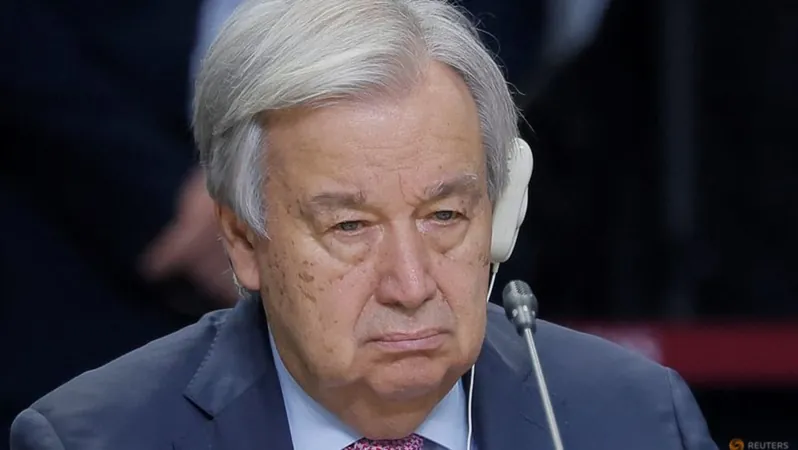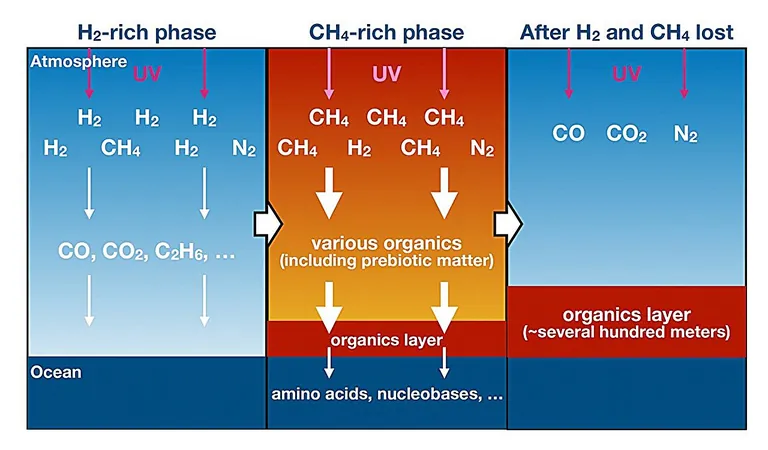
UN Chief Urges Israeli PM to Reconsider UNRWA Ban Amid Growing Humanitarian Crisis
2024-10-30
Author: Ming
Introduction
In a dramatic move, UN Secretary-General Antonio Guterres has penned a powerful letter to Israeli Prime Minister Benjamin Netanyahu in response to a controversial new law that threatens the operations of the United Nations Relief and Works Agency for Palestine Refugees in the Near East (UNRWA). This law, recently passed by the Israeli parliament, restricts UNRWA from functioning within Israel and occupied East Jerusalem, jeopardizing its ability to communicate with Israeli authorities and leading to severe consequences for Palestinian aid efforts.
Impact on Assistance Programs
According to Guterres, the legislation could effectively end UNRWA's crucial assistance programs in Gaza and the West Bank, where millions of Palestinians rely on the agency for essential services such as education, healthcare, and food distribution. The looming ban is set to take effect in three months, raising alarms about a potential humanitarian disaster in the region.
Tensions Surrounding UNRWA
Israel's longstanding tension with UNRWA has been exacerbated by claims that some agency employees were involved in the recent Hamas attacks that ignited the ongoing conflict in Gaza. However, Guterres emphasized that there is no viable alternative to UNRWA’s services, stating that the law's implementation could have 'devastating consequences' for the Palestinian population.
Guterres' Appeal
In a passionate appeal to the Israeli government, Guterres urged, 'I appeal to you and to the government of Israel to prevent such devastating consequences and to allow UNRWA to continue carrying out its activities in the Occupied Palestinian Territory, including East Jerusalem, in accordance with its obligations under international law.' His letter points out that international law mandates that occupying powers, such as Israel, must ensure that the needs of those living under occupation are adequately met.
UNRWA's Historical Context
UNRWA was established in 1949 by the UN General Assembly in the aftermath of the first Arab-Israeli war, which resulted in significant displacement of Palestinians during the formation of the state of Israel. With millions of refugees and descendants still dependent on aid, the agency plays a critical role in sustaining the lives of those affected by ongoing conflict and instability.
Conclusion
As the region faces intensified humanitarian challenges, the clock is ticking for a diplomatic resolution that could prevent further suffering for Palestinian communities. The next few months will be crucial as international observers watch closely how Israel responds to Guterres' impassioned call for reconsideration of the UNRWA ban.





 Brasil (PT)
Brasil (PT)
 Canada (EN)
Canada (EN)
 Chile (ES)
Chile (ES)
 España (ES)
España (ES)
 France (FR)
France (FR)
 Hong Kong (EN)
Hong Kong (EN)
 Italia (IT)
Italia (IT)
 日本 (JA)
日本 (JA)
 Magyarország (HU)
Magyarország (HU)
 Norge (NO)
Norge (NO)
 Polska (PL)
Polska (PL)
 Schweiz (DE)
Schweiz (DE)
 Singapore (EN)
Singapore (EN)
 Sverige (SV)
Sverige (SV)
 Suomi (FI)
Suomi (FI)
 Türkiye (TR)
Türkiye (TR)